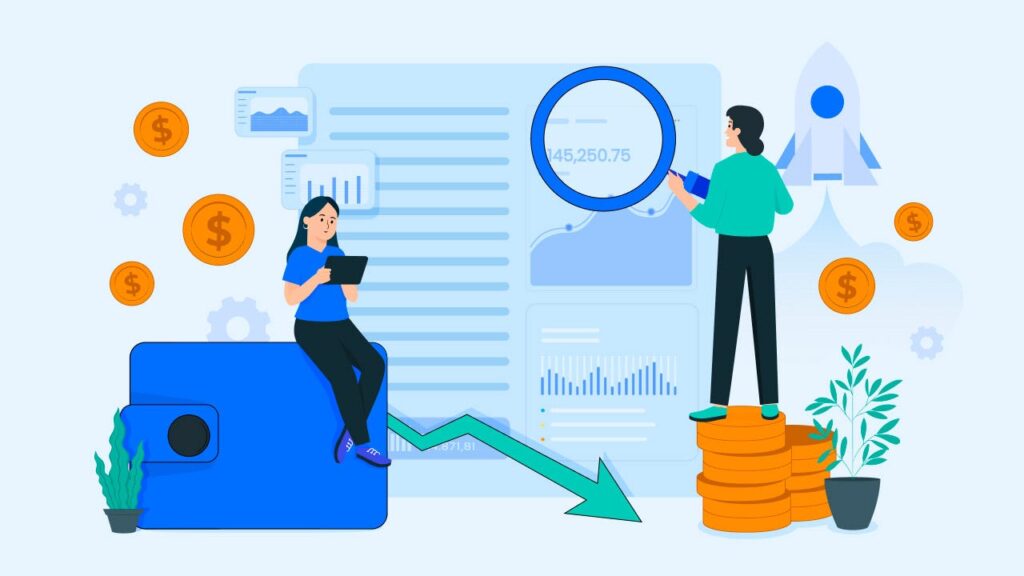Managing business expenses efficiently

Efficiently managing business expenses is fundamental for the sustainability and growth of any company. By adopting effective cost control measures, businesses can enhance their profitability and maintain a competitive edge in the market.
This post delves into various strategies for monitoring and reducing operational costs without sacrificing quality or productivity. We'll explore practical steps you can take to keep your spending in check and ensure your business thrives even in challenging economic times.
From leveraging technology to streamlining processes, discover how you can achieve a more efficient allocation of resources and a healthier bottom line.
Understanding Your Expenses
Before you can manage your business expenses, you must first understand where your money is going. This means keeping meticulous records of all outgoings, including both fixed and variable costs. Employing accounting software can make this task easier and provide valuable insights into spending patterns.
Once you have a clear picture of your expenses, categorize them. This categorization will help you identify areas where savings can be made. For instance, you might discover that a significant portion of your budget is being spent on non-essential services.
Regular review of your expenses is crucial. Markets and business needs change, and so should your spending. A quarterly review will help you adjust your budgets according to your current needs.
Streamlining Processes
Operational efficiencies can lead to significant savings. Evaluate your business processes to identify any inefficiency, such as repetitive tasks that could be automated or outsourced.
Investing in technology might have an upfront cost but can save money in the long-run by automating tasks, thus freeing up employee time for more value-adding activities.
Moreover, adopting a lean philosophy that focuses on minimizing waste can improve your bottom line. This approach involves constant evaluation and improvement of processes to enhance productivity and reduce costs.
Negotiating with Suppliers
A direct way to reduce your business expenses is through negotiating better terms with your suppliers. This can include asking for discounts for bulk purchases or paying upfront for a certain period.
Don't shy away from regularly reviewing your suppliers to ensure you're getting the best deal. Occasionally, it might be beneficial to switch suppliers or renegotiate contracts to favor your business’s financial health.
Remember, it’s about building long-term relationships with your suppliers. Negotiations should aim for a mutually beneficial agreement, not just the lowest price.
Investing in Employees
Your employees are your most valuable asset. Investing in their training and development can actually save your business money by reducing turnover and enhancing productivity.
Encourage a culture of cost-awareness among your team. When employees understand the financial impact of their actions, they are more likely to identify cost-saving opportunities within their roles.
Implementing incentive programs for cost-saving ideas can further motivate employees to contribute to reducing business expenses.
{FAQ}
{FAQ_ITEM}
{FAQ_TITULO}What are the first steps to take for better management of business expenses?{/FAQ_TITULO}
{FAQ_CONTEUDO}The initial step is to thoroughly understand and categorize your current expenses, followed by adopting an appropriate tool for tracking these expenditures efficiently.{/FAQ_CONTEUDO}
{/FAQ_ITEM}
{FAQ_ITEM}
{FAQ_TITULO}How can technology reduce business expenses?{/FAQ_TITULO}
{FAQ_CONTEUDO}Technology, through automation and streamlining operations, can significantly cut down on time-consuming tasks, reduce human error, and lead to better decision-making through accurate data analysis.{/FAQ_CONTEUDO}
{/FAQ_ITEM}
{FAQ_ITEM}
{FAQ_TITULO}Is negotiating with suppliers always about getting the lowest price?{/FAQ_TITULO}
{FAQ_CONTEUDO}No, the goal of negotiations should be to reach a mutually beneficial agreement that ensures value for both parties, not just to obtain the lowest possible price.{/FAQ_CONTEUDO}
{/FAQ_ITEM}
{/FAQ}
Conclusion
Efficiently managing business expenses goes beyond mere cost-cutting; it involves optimizing your resources to achieve better financial health and competitiveness in the market. By understanding and categorizing your expenses, streamlining processes, negotiating better terms with suppliers, and investing in your workforce, you can create a more resilient and profitable business.
Remember, the goal is to maintain a balance between reducing costs and maintaining the quality of your offerings. Strategic expense management can lead to sustained growth and success.
With the focus keyword "Business expenses" in mind, we've explored various strategies to help businesses efficiently manage their financial outgoings. Adopting these practices can significantly impact your company's bottom line.

Related